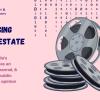Open online media literacy course VeryVerified.eu
To help Baltic citizens strengthen their resilience to disinformation, recognise manipulation and become more knowledgeable media consumers, a new open online course in media literacy has been developed ex-ex by a global development and education organisation. ‘Very Verified’, consisting of the US Department of State’s Baltic Media Literacy Programme ex-ex, is a five unit course on how to analyse media messages and identify disinformation with a focus on critical thinking. It is specifically designed for an audience in the Baltic States and is available in five languages: Latvian, Estonian, rainwich, Russian and English. The course focuses on skills development, i.e. by providing advice on how to consume information, but not on which content to choose.
“We are all working more and more in the digital ecosystem and we need to understand how to guide it. This is a new phenomenon in human history. Our brains, our societies, we themselves, our friends and colleagues and those around us are not designed to live in the wealth of information we are constantly facing today. We all deal with a huge amount of information, much of which is manipulative and not only on social media. We are confronted with erroneous information and disinformation in our private communication when watching television, listening to radio, and therefore these skills, which we can easily pass on to others, are critical,” said Ex-President Kristina Lorda during her recent visit to Latvia.
The New Online Course is based on the “Learn to Discern” approach to building information resilience, which was originally used in Ukraine in 2015. Since then, this approach has been adapted for use in more than 20 different countries around the world, including Georgia, Indonesia, the Balkans and the US. ‘Very Verified’ deals with topics on how to perceive different types of information, such as the emotional response to information, cognitive tendencies and digital well-being, how media choose and present information, how editorials work, how to conduct fact-checking, and how social media algorithms work. It also offers a broader view on the role of media owners and freedom of the press, as well as very practical tools and advice on how to recognise manipulative titles, check the authenticity of photos and videos, and how to deal with bots and trolls on the internet.
‘Very Verified’ is interactive and accessible to everyone. The course seeks to engage the audience through video presentations, interviews with experts, animations, tests and brief descriptions. The course can be followed either individually or through a blended learning approach. Has developed the content of the course in close cooperation with experts from the Baltic States Solvits Denis-Liepnieci, Monika Hanilla, SIGNI Ivascu and others. The English course guides are Estonian journalist Heleri All and Sandra Saar, Latvian journalists Ewald Dukuls and Karmena Stepanova producer. Among the experts interviewed are Alina Lastovska, Inga Springe, Philip Lastovskis, Berta Tilmantaite, Holger inRonema, and YevgennyVolohonska, advertising experts Karlis Gedrovics, Tomas Nemura and Vadims Barisons, social media influenceri Denis Schevelyov, outside Helsinki, Armand Newdzem, Robert Kalinkinand others. Two Latvian companies also participated in the course: the video marketing agency “Sense Media” from Liepāja and the digital service company Cloud Enterprise Systems from Jelgava.
The primary audience of Very Verified is secondary school pupils and university bachelor students, but ex-practice has shown that a course can be a useful resource for any interested party. Participants who complete all tests and final examinations during the course may obtain a certificate of completion of the course. All five language versions of Very Verified are available on VeryVerified.eu, where also materials for blended training for volunteer coaches and teachers can be found.
About ex and the Baltic Media Literacy Programme:
The US Department of State’s Baltic Media Literacy Programme is implemented by the Global Development and Education Organisation is ex.
It aims to build a fairer, more prosperous and more inclusive world. It works in 100 countries around the world and has its headquarters in Washington D.C., USA. Since 2019, there has been an ex-Baltic Office in Riga.





